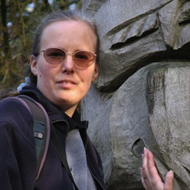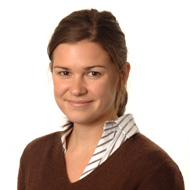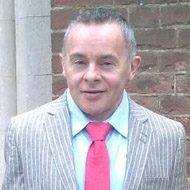Alina is the course director for the new MSc Sustainable Planning at the University of Hertfordshire . She is responsible for course design, academic content, co-ordination, recruitment and marketing and leads a number of modules. Her current research involves identifying local authorities in the US and UK that are leaders and innovators in climate change mitigation and compare and contrasts their approaches to fostering clean energy use.
Alina was initially interested in what could be done to make new housing more sustainable, especially in mainstream projects, so she did a PhD on a very specific area of housing. Subsequently an academic post at the London School of Economics quickly turned her into more of a generalist – having to have a broad knowledge across the subject area to teach MSc students. She worked for four years at Reading University and then applied for the principal lecturer post at Hertfordshire two years go, where her background in both sustainability and planning have been fundamental in getting the new MSc programme off the ground.
I worked on a consultancy project about resource efficiency in the built environment earlier this year. The work was funded by WRAP and carried out in partnership with Parsons Brinkerhoff. We developed online learning resource for practitioners and MSc students. Working with Parsons Brinkerhoff allowed access to lots of case studies they have been working on with clients, something it would be difficult to get access to as an academic. One of our case studies was London 2012 Main Olympic Stadium. I couldn’t watch the Games last summer without thinking about the construction. Hopefully one of the outcomes of this work will be to engage and inspire practitioners and students who use the resource to see sustainability as something positive for their work rather than a burden or cost.
The part of Alina's teaching that she enjoys the most is supporting students with their individual research projects. She pair up students with local companies or voluntary sector organisations so they are working on a real piece of research of interest to an external client. This motivates the students to do their best work as well as improving their employment prospects. One student has just finished working with an environmental management company - Blackmores - looking at Energy Management Systems in data centres, and work has been published in the main trade press journal for data centre managers. Another student is working with the Transitions group in St Albans, helping them assess the energy savings that have resulted from their behaviour change project.
I attended an IES/PP4SD event about five years ago and was very impressed with the quality of the event and the useful contacts that I made. As an ice breaker at the event we were given photographs to look at and we had to decide in pairs whether we thought the image presented was sustainable…. I have since adapted this and used it as an icebreaker with my MSc students.
Many membership organisations are entirely focused around the needs of academic or practitioner audiences. I find IES refreshing in that the material is appealing to both audiences.
Alina is keen to make her research relevant and accessible to professional audiences. She is particularly interested in exploring opportunities for collaboration with well-regarded think tanks and professional membership organisations.




